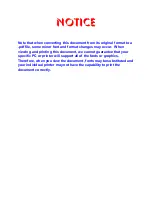
7
Safety precautions
right page (7)
of AL21 PELICAN FCC us-en (27.02.2006, 13:02)
© BenQ M
obile Gmb
H
& Co OHG
200
4, \
\It
l.eu\
cott
bus\
Projekte_
30\
Ben
Q
_M
ob
ile\AL21
_PELICAN\out
-
Temp
late:
X75,
Ver
sion 2
.1
; VAR
Language: am;
VAR issu
e date:
05071
1
Other medical devices
If you use any other personal medical de-
vices, consult the manufacturers of your
devices to determine if they are ade-
quately shielded from external RF energy.
Your physician may be able to assist you
in obtaining this information.
Turn your phone OFF in health care facili-
ties when any regulations posted in these
areas instruct you to do so. Hospitals or
health care facilities may be using equip-
ment that could be sensitive to external
RF energy.
Vehicles
RF signals may affect improperly installed
or inadequately shielded electronic sys-
tems in motor vehicles. Check with the
manufacturer or its representative regard-
ing your vehicle. You should also consult
the manufacturer of any equipment that
has been added to your vehicle.
Posted facilities
Turn your phone OFF in any facility where
posted notices so require.
Airplanes
FCC and Airline Regulations prohibit using
your phone while in the air. Turn your
phone OFF when requested by the airline.
Check and comply with the policy of your
airline regarding the use of your phone
while the airplane is on the ground.
Blasting areas
To avoid interfering with blasting opera-
tions, turn your phone OFF when in a
“blasting area” or in areas posted: “Turn
off two-way radio.” Obey all signs and in-
structions.
Potentially explosive atmospheres
Turn your phone OFF when in any area
with a potentially explosive atmosphere
and obey all signs and instructions.
Sparks in such areas could cause an ex-
plosion or fire resulting in bodily injury or
even death.
Areas with a potentially explosive atmo-
sphere are often but not always clearly
marked. They include: fueling areas such
as gasoline stations; below deck on boats;
fuel or chemical transfer or storage facili-
ties; vehicles using liquefied petroleum
gas (such as propane or butane); areas
where the air contains chemicals or parti-
cles, such as grain, dust or metal pow-
ders; and any other area where you
would normally be advised to turn off
your vehicle engine.
Emergency calls (SOS)
Your wireless phone can be used to make
emergency calls. You can make an emer-
gency call from the main display screen.
Enter the local emergency number such
as 911 and then press the
A
key.
This phone, like any wireless phone, oper-
ates using radio signals, wireless and
landline networks, and user-pro-
grammed functions. Because of this, con-
nections in all conditions cannot be guar-
anteed. Therefore, you should never rely
solely on any wireless phone for essential
communications (for example, medical
emergencies). Remember – to make or
receive any calls, the phone must be
switched on and be used in a service area
that has adequate signal strength. Emer-
gency calls might not be possible on all
wireless phone networks or when certain
network services or phone features are in
use. Check with local service providers re-
garding their network features.








































